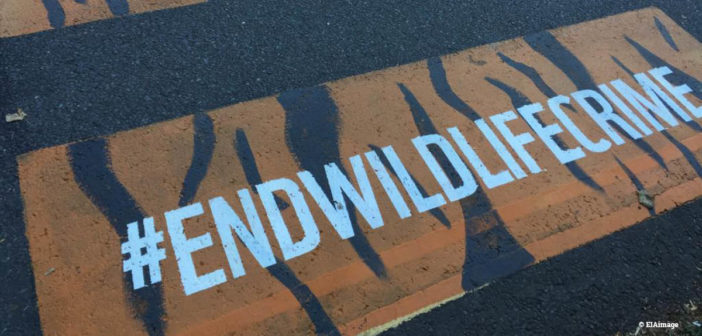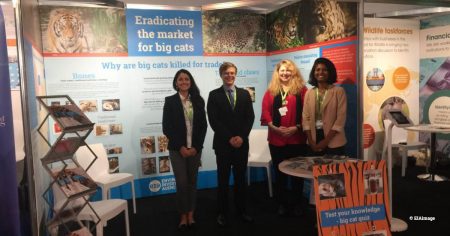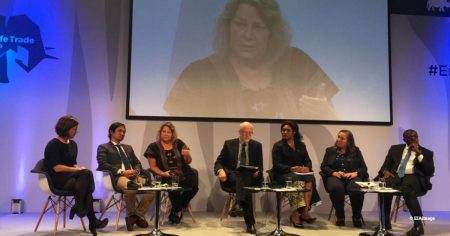The fourth conference on Illegal Wildlife Trade (IWT) in London this week has seen high-level participation from governments, non-governmental organizations (NGOs), and the private sector, focusing the attention of the international community on previous commitments to tackle IWT as a form of serious organised crime.
In the run-up to the conference, our campaigners noted significant new developments, such as the creation of a new financial task force and a coalition of technology giants committed to combating IWT online.
We were delighted to be invited by the United Kingdom (UK) government to host an exhibit on big cats at the conference, which was visited by His Royal Highness Prince William, The Duke of Cambridge. The exhibit successfully raised the profile of the global threat posed by trade to big cats, from jaguars in Latin America to lions in Africa and tigers in Asia.
On the last day of the conference, our Forests Campaigns Leader Faith Doherty spoke at a high-level panel on the synergies in combating wildlife and forest crime.
Following the conference, the UK government published a declaration of actions and commitments arising from the event. We welcome the declaration’s affirmation of existing commitments under previous IWT declarations and existing international agreements and, in particular, applaud the recognition of connections between IWT and other serious forms of crime.
We are, however, disappointed in the absence of a stronger call for closure of legal domestic markets for parts and products of elephants, big cats, pangolins and other species threatened by trade. While eradicating the market for illegal wildlife is a major theme for this conference, it largely did not address the fact that the government of China continues to issue permits for legal trade in leopard bone and pangolin scales.
As the conference comes to a close, the clear message has been that the time for action is now. This must be more than just a soundbite.
Debbie Banks, our Tiger and Wildlife Crime Campaign Leader, said, “The prominence given in the declaration to addressing corruption is especially welcome. The conference has heard first-hand accounts of how corruption is impeding the practical implementation of laws, policies and practices that are intended to combat wildlife and forest crime.
“The real test of our improvement on these issues will come in the very near future, because the clock is ticking very loudly for many threatened species.
“We look forward to working with the UK government and other stakeholders to ensure that words are turned into actions and existing commitments are honored.”
Featured image: A tiger-themed pedestrian crossing at the London Conference on the Illegal Wildlife Trade. This image and all images in this post credited to EIA.







